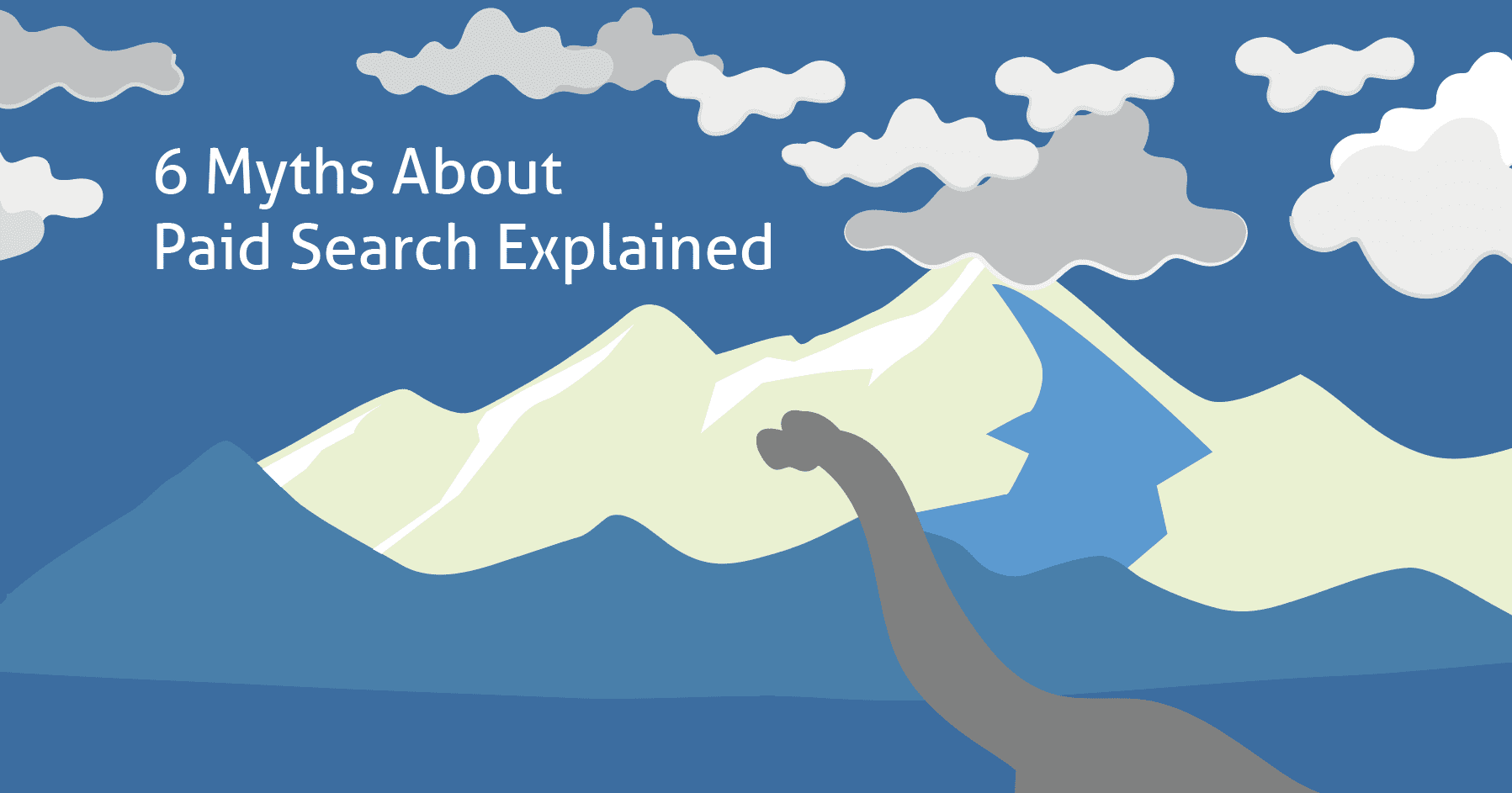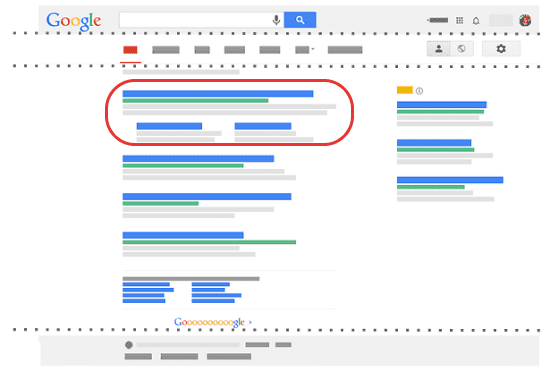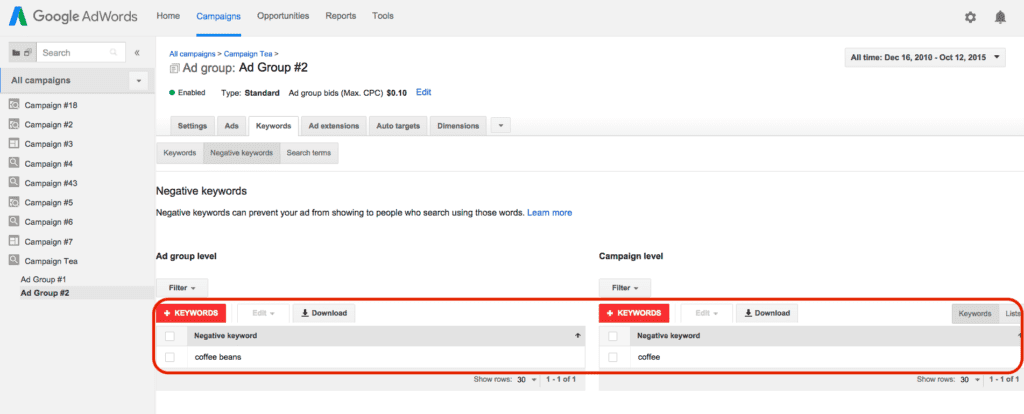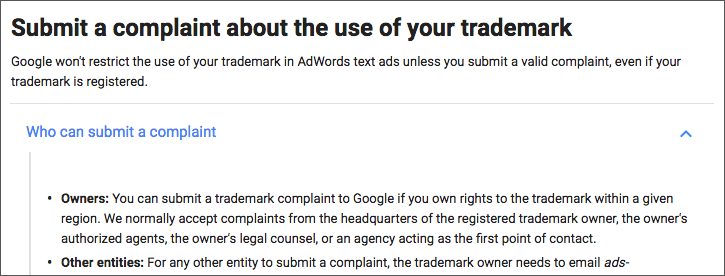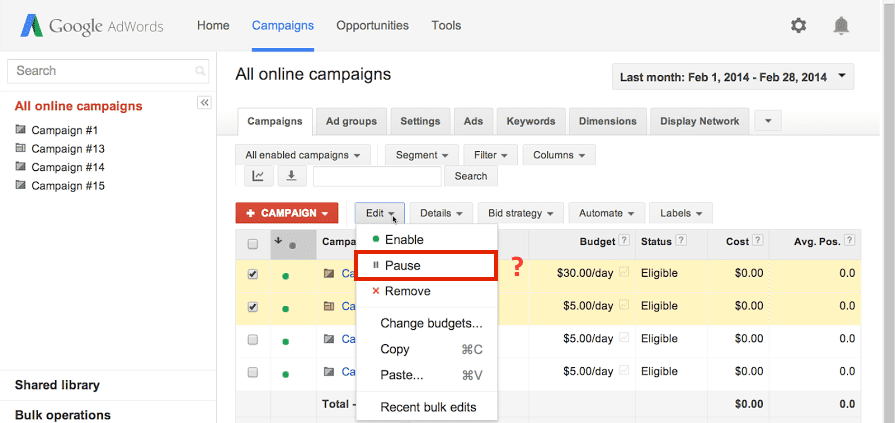Everyone has an opinion about paid search marketing, and that speaks to just how popular it has become. The challenge is that the laws of PPC and digital marketing change fairly frequently, allowing for a flood of myths and misinformation to be thrown about.
Beware: following the wrong rules can not only destroy your PPC strategy, you’ll lose a hefty amount of money, too.
We want to set you straight. The following is our take on the most common myths about paid search—and what you should be doing to get the most out of your search campaigns.
1. “Being at the top search result spot is the best place to be.”
Offhand, being at the top is great—for all the obvious reasons. It’s especially effective for organic search. But, being at the very top spot for a paid search campaign can significantly harm your conversions.
The truth: Here’s why. The top placement will undoubtedly garner you a lot of attention—and clicks! But if the clicks aren’t the exact right buyers or folks who are ready to buy immediately, you’ll see your conversion rates drop despite the massive uptick in traffic.
To avoid this, evaluate your ad content with fresh eyes. Is it misleading? Is it compelling and detailed? Clear ad content will help to avoid gathering the wrong types of clicks.
2. “Only worry about negative keywords for broad match.”
This one is tricky. Negative keywords represent the inverse of what you want to bid on for your AdWords campaign. Rather than targeting a particular search term, you can input negative keywords to avoid the search term altogether. Negative keywords can apply to both the ad and campaign levels.
Inputting negative search terms at the campaign level prevents your ads from showing—period—for any of those keywords. Inputting negative keywords at the adgroup level does the same thing, but only for that particular adgroup.
The Truth: Google’s match types deliver a broader range of results than you may realize. There are many match types that could cause your keyword to be filtered, or triggered. You may be filtering out traffic that you want. For example, if you’re filtering out “basketball shoes” your search may still return results for these searches: “white basketball shoe” or “new shoes basketball.”
Unlike regular keywords, negative keywords don’t account for synonyms or similar keywords. Queries like “cheap basketball shoes” or “Los Angeles basketball shoes” would get filtered out. It’s a meticulous process.
As part of your PPC strategy, you should be focused on building a precise list of negative keywords. A smart way to tackle this is to run a search query report, then pull out all of the searches that don’t apply to your ad.
3. “You can’t bid on trademarked terms.”
Like everything, there’s a bit of a gray area here. We need to differentiate between bidding on trademarked terms and trademarked terms in ad copy. For AdWords text ads, Google will review any complaint it receives and investigate—but they must receive a complaint to evaluate the situation. Restricted trademarked terms in copy is completely prohibited—worldwide.
For AdWords text ads, Google will review any complaint it receives and investigate—but they must receive a complaint to evaluate the situation. Restricted trademarked terms in copy is completely prohibited—worldwide. However, bidding on trademarked terms is a different matter.
The truth: In the Google help files, it explicitly states that “Google won’t investigate or restrict the selection of trademarks as keywords, even if we receive a trademark complaint.” Bam!
4. “You don’t need to bid on your branded terms.”
It’s easy to get overly confident as a marketer when it comes to branded terms, or terms that searchers use when looking for a specific company. At a glance, this may seem like a prime opportunity to rely on organic traffic and to put your energy elsewhere.
The truth: Don’t let the overconfidence kill your campaign. There are no promises. While your branded terms will likely generate high CTRs, bidding on your branded terms gives you some cushion. The more search results you can dominate, the better. It’s a no-nonsense strategy for edging out the competition and leaving less to chance.
The results speak for themselves: More clicks overall, high-quality spikes in conversion rates and lower bounce rates.
5. “You should pause keywords with poor performing CPAs.”
Welllll, it’s surely understandable that you want to stop ads with poor CPAs in their tracks, but you could be closing the door on opportunity. Even if an ad is underperforming, you’re still receiving some conversions. If you stop the ad completely, your few conversions may become zilch.
The truth: Treat keywords with low CPAs as a nurture project. Like anything in digital marketing, there’s ample room for optimization and testing. Edit your bids to keep the growth potential alive and, hopefully, push the conversion into a more acceptable range. And if you really want to pause a keyword, focus on the ones that haven’t converted at all first.
6. “Display Ads won’t generate money”
This is an old myth—nothing could be farther from the truth! Display ads have come a long way in terms of optimization and customization. But it’s the marketers who think they can just plop an ad online and see immediate ROI who will struggle with this one.
The truth: Display ads have the potential to be a power tool and a powerful revenue generator. But whether your display ads are successful depends on:
- Placement: Avoid white space. Place your ads in content or near the top of content for them to be most effective.
- Number of ads: You can’t just run a handful of ads and expect to see big bucks flowing in. Run as many ads as you feel you can get away with, and have a comprehensive placement strategy. This will allow you to do ample testing and garner significant traffic.
- Traffic: You won’t see ROI from display ads if you aren’t generating enough traffic.
Do you have a favorite PPC myth you’d like to share? We want to hear from you. Share your PPC myth with us on Twitter or Facebook.
